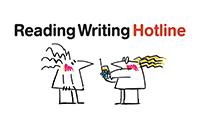Help with Dyslexia in Adults
Many people who struggle with reading and writing wonder, ‘am I dyslexic?’ Many have been told by a doctor or other professional that they have dyslexia.
What is dyslexia?
Dyslexia is a language-based learning disability. Students with dyslexia usually experience difficulties with language skills, such as reading fluency, spelling, writing, and pronouncing words. They may find it difficult to express themselves clearly, or to fully comprehend what others mean when they speak. Dyslexia affects individuals throughout their lives.
The term ‘learning disability’ is used to describe people who have problems processing information or who learn differently from the norm. People who have been diagnosed with dyslexia fall into this category. Dyslexia is not due to either lack of intelligence or desire to learn. People with dyslexia are often capable or even gifted in areas such as art, computer science, design, drama, electronics, math, mechanics, music, physics, sales, and sports.
In addition, dyslexia runs in families; having a parent or sibling with dyslexia increases the probability that you will also have dyslexia.
What causes dyslexia?
It is not clear what causes dyslexia, but brain imagery studies show differences in the way the brain of a person with dyslexia develops and functions. Most people with dyslexia have problems with identifying the separate speech sounds within a word and learning how letters represent those sounds, a key factor in their reading difficulties.
Will I be able to learn to read?
There is no ‘cure’ for dyslexia; however with appropriate and timely instruction, individuals who have dyslexia can succeed in school and later as adults. It is important that adults who have a learning disability realise that they can learn to read and write just as well as anyone else – it may just take a little longer and a little more effort.
However … not all reading difficulties are caused by dyslexia!
Do not assume that you necessarily have some sort of learning disability even though you may have been ‘diagnosed’ with dyslexia. It is worth remembering that dyslexia is the cause of reading and writing problems in only a small proportion of adults who feel they need to improve their literacy skills. Most of the adults who come to adult literacy classes tell of any number of educational experiences and life situations that can very adequately explain a lack of progress in their education. These may be reasons such as broken schooling, patterns of long absence from school, undiagnosed hearing problems, or families that did not value learning and reading.
For more information:
If you are worried that you, or someone you know has dyslexia, call the Reading Writing Hotline on 1300 6 555 06 to speak with someone about the best course of action.


